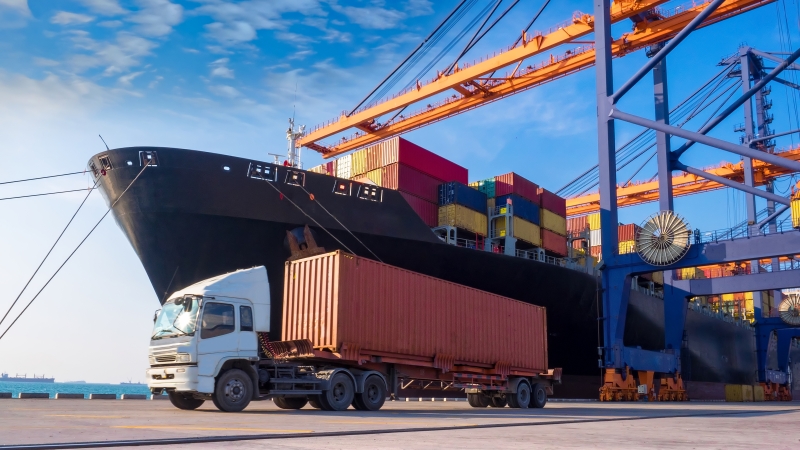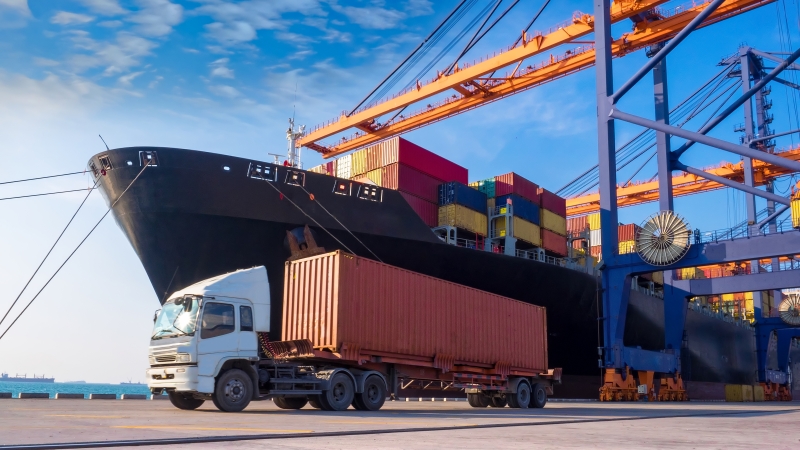Rise of electric cars to shift biofuels use to other transport areas
As the pending combustion engine ban sets the clock ticking on the lucrative fuels market for passenger vehicles, the biofuels industry is aiming to bolster its position in other transport sectors – including trucking, shipping and aviation.
Support for EU legislation to ban the sale of passenger vehicles running on petrol and diesel from 2035 all but guarantees a switch away from liquid fuels towards electric powertrains across the bloc.
And while internal combustion engines will continue to run for the next decades, demand for liquid fuels is expected to gradually fall as the share of zero-emission vehicles increases.
But rather than reducing the share of biodiesel in the EU transport system, the biofuels industry is expected to redirect supply to difficult-to-electrify transport modes.
“We see a big, big market for biodiesel in the heavy-duty vehicles space and then of course in maritime and in aviation. Especially in aviation there’s really no alternative to continue using liquid-based fuels,” said André Paula Santos, public affairs director with the European Biodiesel Board (EBB), a trade association representing biodiesel producers.
“In maritime, there are many alternatives in the market, but they are all much more expensive than biodiesel. Biodiesel is probably the most cost-effective way to immediately start decarbonising the maritime sector,” he added.
Green jet fuel
While biodiesel from food-and-feed crops is currently used to cut road transport emissions, EU lawmakers are expected to prohibit the use of crop-based fuels in planes over land use change concerns.
Green lawmakers and NGOs have also increased attacks on crop-based biofuels for contributing to food insecurity since the outbreak of the war in Ukraine – allegations industry has strongly denied.
Conversely, biodiesel produced from waste products – such as used cooking oil and certain animal fats – is expected to get the green light from lawmakers to replace kerosene.
Santos argues that it is “not logical” to consider biodiesel produced from crops an important means to decarbonise road transport, while forbidding its use in other transport sectors.
“If biodiesel is going to be less needed in the road sector in the future, then why not redirect it to the maritime and to the aviation space?” he said.
“We’re not saying we should increase crops exponentially, or we’re not saying let’s double or triple our production because we understand the political mood that we are living in. This is probably a nonstarter with a lot of people. But we are saying, within the same quantities that we use now, we can redirect resources to where they are needed.”
Brussels has set a 7% limit on the quantity of crop-based biofuels that EU countries can use in their transport sector. As the percentage of biofuels in the road sector falls, an introduction of crop-based biofuels to the aviation sector could be done while “respecting the caps and respecting the sustainability criteria that is in place under the EU renewable energy directive” stressed Santos.
Road freight
Heavy duty trucks have the potential to absorb a significant chunk of the biodiesel supply currently designated to cars and vans as they will take much longer to shift to zero emission alternatives, according to EBB.
While manufacturers are introducing electric and hydrogen trucks into the market, they are at an early stage and primarily used for short-haul journeys.
Sales of zero emission trucks have “stalled at a very low level” due to a lack of vehicle options, particularly for long-haul operations, according to a position paper released by the European Clean Trucking Alliance this month.
A lack of charging stations and the longer refuelling times required by alternative vehicles have also put companies off adopting zero emission alternatives to diesel trucks.
“Every time a truck stops, it is not making money. So, the goal of the truck is to be running all the time,” said Santos. “In the heavy-duty vehicle sector, the timeframe [to switch to zero-emission vehicles] is much, much, much longer.”
The biofuels industry may also be tempted to sell to foreign markets if incentives are favourable.
“[Biofuels] is a global market and industry goes where the incentive goes. So, if there’s a huge incentive to sell in California, for instance, it’s possible,” said Santos.
However, the goal is to remain a Europe-focused business.
“I do think that the idea of the biofuel industry is not to export all over the world. It’s to be local. So ideally, you wouldn’t have to do this, you would produce and sell within your region,” he added.

